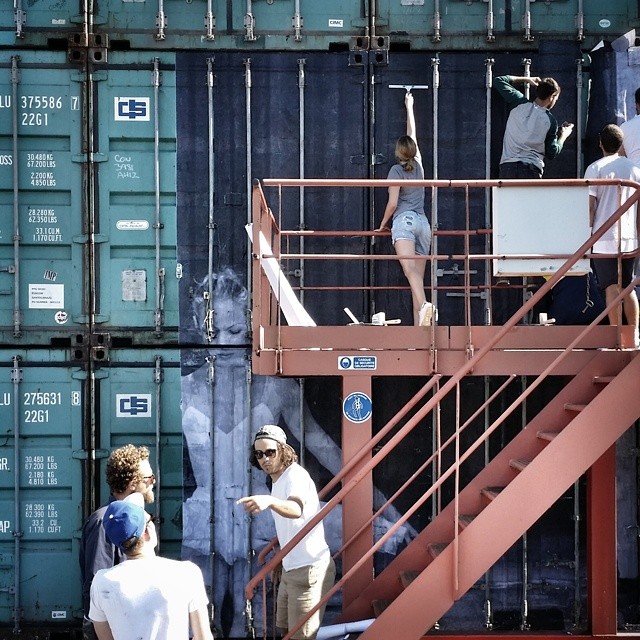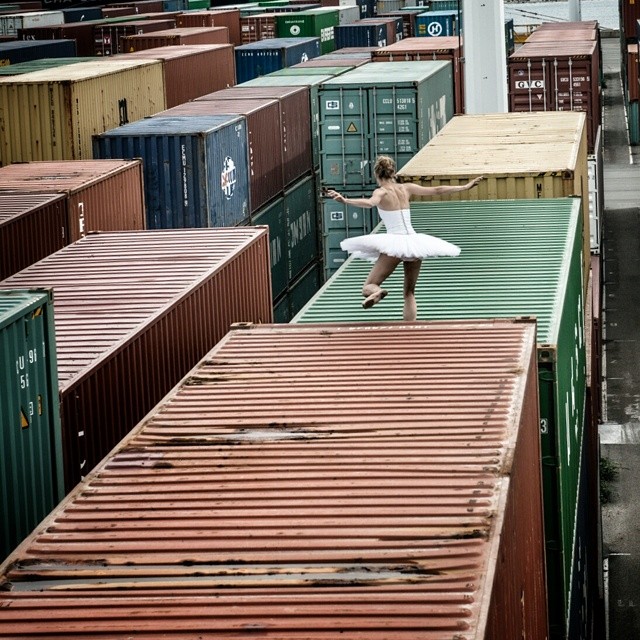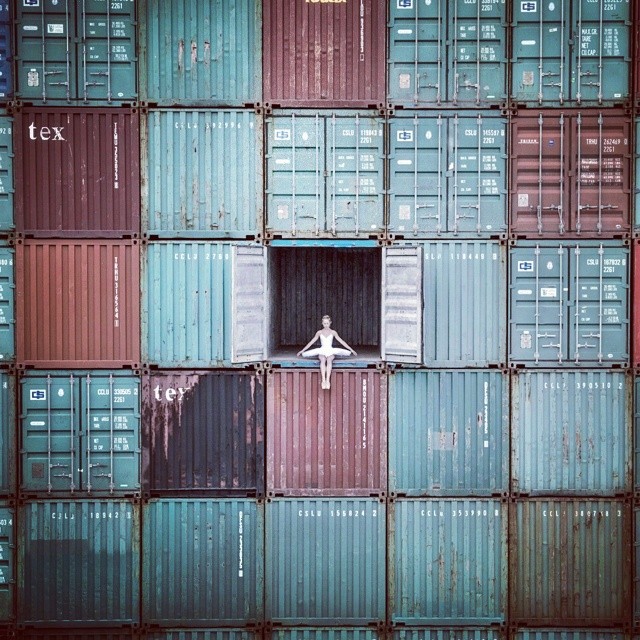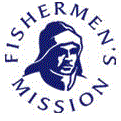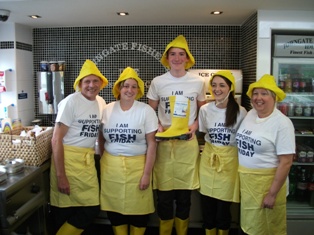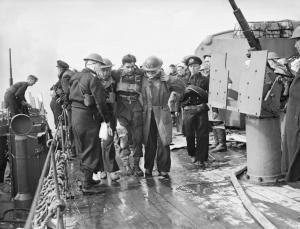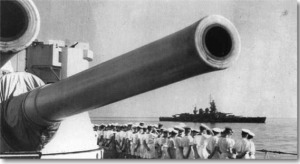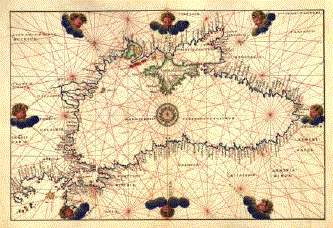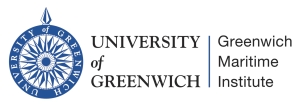Earlier this month French street artist and human rights champion JR launched one of his most unique projects yet when a giant shipping container ship set sail from le Havre, France to Malaysia. Adorned with the giant eyes of a Kenyan woman living in the Kibera Slums along with an image of a ballet dancer from his recent Les BosquetsNYC ballet production, the giant moving artwork served as the culmination of his Women Are Heroesart project that began in 2007.
“In 2007, I started Women Are Heroes to pay tribute to those who play an essential role in society, but who are the primary victims of war, crime, rape or political and religious fanaticism,” explains the artist. “I pasted portraits and eyes of women on a train in Kenya, a Favela in Brazil, and a demolished house in Cambodia. They gave their trust and asked for a single promise to make their story travel with me. I did it, on the bridges of Paris and the walls of Phnom penh, the building of New York, etc. I wanted to finish Women Are Heroes with a ship leaving a port, with a huge image which would look microscopic after a few minutes, with the idea of these women who stay in their villages and face difficulties in the regions torn by wars and poverty facing the infinity of the ocean. I have no idea of what is in the containers on the boat: stuff from people leaving a country to build a different life in another region, goods that will be transformed, worn, or eaten in a different country. I have no idea where and how people will see this artwork, but I am sure that some women far away will feel something today.”
Keep your eyes peeled this month as the ship travels across the Mediterranean sea, past the Suez Canal to its final destination in Malaysia…
Click here to find out more

